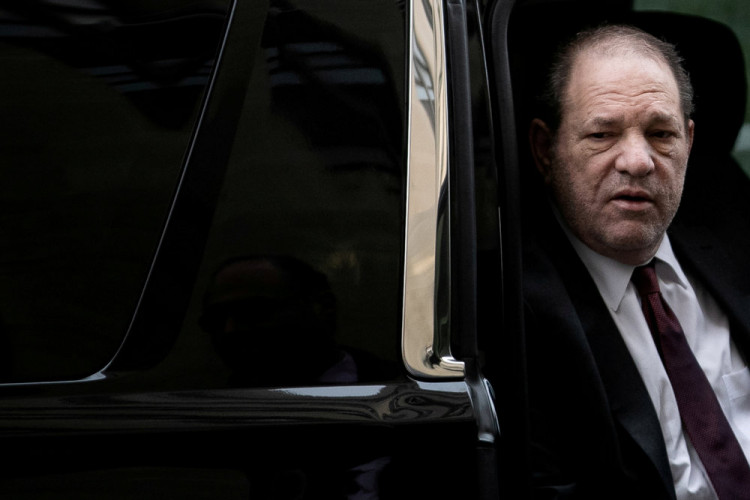New York's highest court on Thursday overturned the 2020 sex crimes conviction of former Hollywood producer Harvey Weinstein, a landmark case that helped to ignite the #MeToo movement. The Court of Appeals, in a 4-3 decision, ruled that the trial judge made critical errors by allowing prosecutors to introduce testimony from women who claimed that Weinstein assaulted them, even though their allegations were not part of the charges he faced.
The court also found that the trial judge compounded the error by permitting Weinstein to be cross-examined in a manner that portrayed him in a "highly prejudicial" light. "It is an abuse of judicial discretion to permit untested allegations of nothing more than bad behavior that destroys a defendant's character but sheds no light on their credibility as related to the criminal charges," wrote Judge Jenny Rivera for the majority.
Weinstein, 72, has been serving a 23-year prison sentence since his conviction in February 2020 for sexually assaulting a former production assistant in 2006 and raping an aspiring actress in 2013. The court's decision now grants him a new trial, leaving it up to Manhattan District Attorney Alvin Bragg to decide how to proceed.
"We will do everything in our power to retry this case, and remain steadfast in our commitment to survivors of sexual assault," said Emily Tuttle, a spokesperson for Bragg, in an email. Bragg's office is currently in the middle of a separate criminal hush money trial against former U.S. President Donald Trump.
The overturning of Weinstein's conviction is a significant setback for the #MeToo movement, which saw hundreds of men in entertainment, media, politics, and other fields accused of sexual misconduct in the wake of the allegations against the disgraced producer. "Today's decision is a major step back in holding those accountable for acts of sexual violence," said Douglas Wigdor, a lawyer who represented eight of Weinstein's accusers. "It will require the victims to endure yet another trial."
In a dissenting opinion, Judge Madeline Singas argued that the court's decision "perpetuates outdated notions of sexual violence and allows predators to escape accountability." She wrote, "Forgotten are the women who bear the psychological trauma of sexual violence and the scars of testifying again, and again. This erosion of precedent, born from a refusal to accept that crimes of sexual violence are far more nuanced and complex than other crimes, comes at the expense and safety of women."
Even if Weinstein is not retried in New York, he still faces a separate 16-year prison sentence in California after being convicted there last year for the 2013 rape of an actress in Los Angeles. Weinstein co-founded the Miramax film studio, whose hit movies included "Shakespeare in Love" and "Pulp Fiction," before his own eponymous film studio filed for bankruptcy in March 2018 amid the mounting sexual misconduct allegations against him.
The Court of Appeals' decision to overturn Weinstein's conviction raises questions about the admissibility of "prior bad acts" testimony in sexual assault cases and the potential prejudice it may introduce against defendants. The issue was also raised in the successful appeal of Bill Cosby's sexual assault conviction in Pennsylvania, where five women were allowed to testify to buttress the one allegation that was charged.






